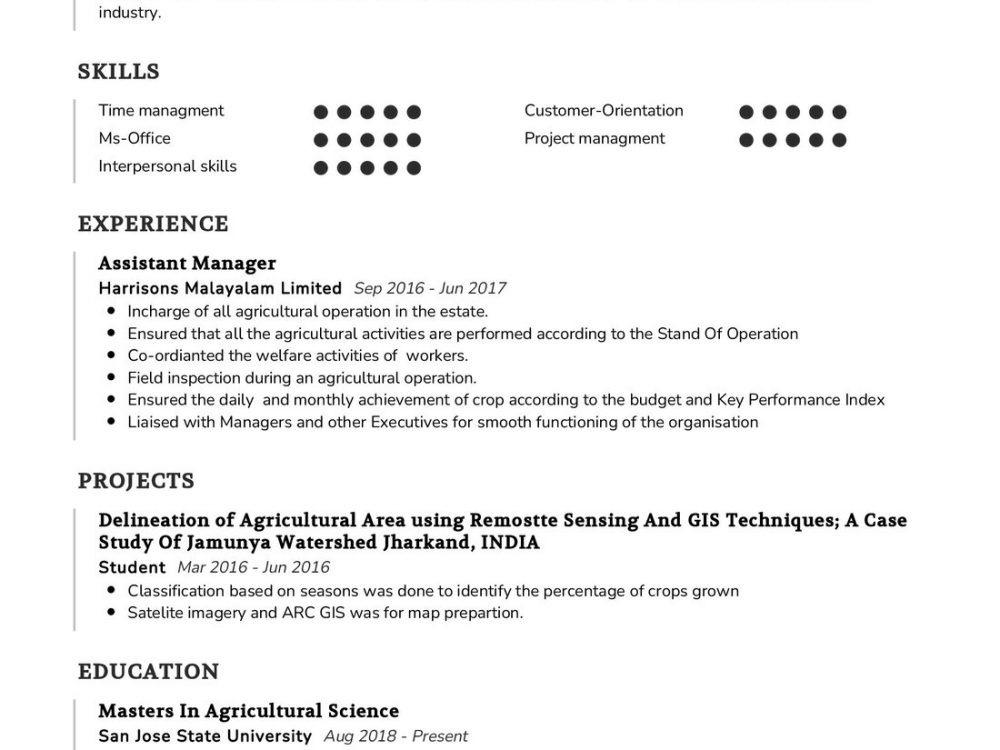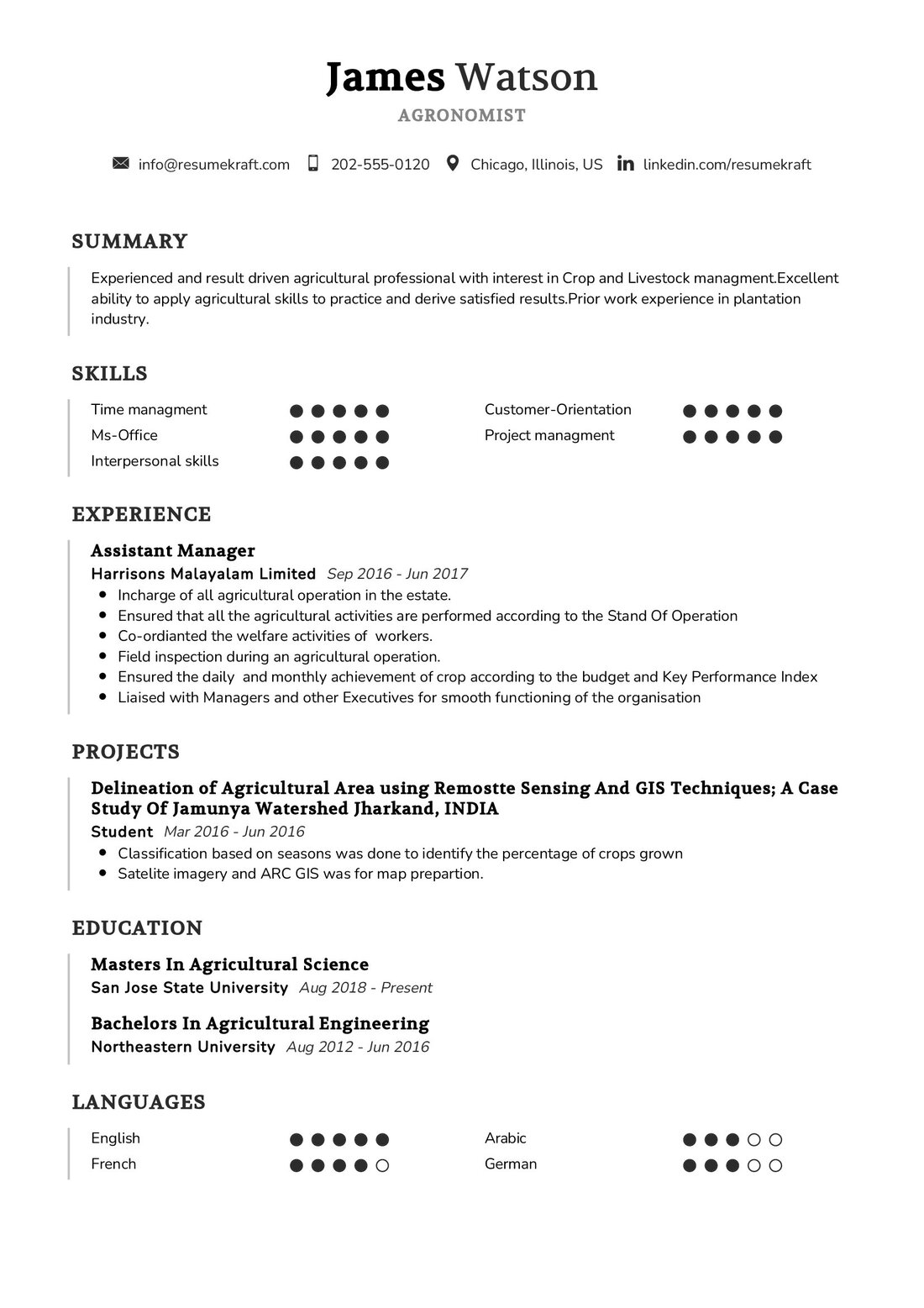What is the Role of an Agronomist?
At the intersection of science and agriculture, agronomists play a pivotal role. These experts delve deep into the world of plants and soil, ensuring that agricultural practices are both sustainable and productive. But what exactly does an agronomist do? Let’s unearth the layers of this intriguing profession.
Agronomists, often referred to as crop scientists, focus on the holistic development and health of crops. They study various factors that can influence crop yield, such as soil quality, seed planting techniques, and pest control methods. Their insights are invaluable for farmers, helping them maximize their harvests while ensuring the soil remains fertile for future crops. In essence, agronomists are the guardians of our food sources, ensuring that farming practices are sustainable and efficient.
What are the Agronomist Job Requirements?
Embarking on a career as an agronomist requires a blend of formal education and hands-on experience. Let’s delve into the prerequisites that set the foundation for a successful career in agronomy:
- A Bachelor’s degree in Agronomy, Agriculture, or a related field, providing a solid foundation in crop and soil sciences.
- Deep understanding of plant biology, soil health, and environmental factors affecting crop yield.
- Experience in fieldwork, where theoretical knowledge meets practical application.
- Strong analytical skills to interpret data and provide actionable insights.
- Effective communication skills, essential for conveying findings and recommendations to farmers and stakeholders.
- Continuous learning mindset, staying updated with the latest research and technological advancements in agronomy.
Additional certifications or specializations, such as in organic farming or soil conservation, can further enhance an agronomist’s profile.
What are the Responsibilities of an Agronomist?
The role of an agronomist is multifaceted, encompassing a range of responsibilities that ensure the health and productivity of crops. Here’s a snapshot of their typical duties:
- Conducting soil tests to determine its health and suitability for various crops.
- Advising farmers on crop selection, planting techniques, and harvest timings.
- Developing strategies for pest and weed control that are both effective and environmentally friendly.
- Researching and promoting sustainable agricultural practices.
- Collaborating with researchers to develop better crop varieties.
- Monitoring agricultural processes and making recommendations for improvement.
- Staying updated with the latest advancements in technology and integrating them into farming practices.
Each responsibility underscores the agronomist’s commitment to ensuring that our agricultural systems are sustainable and productive.
Agronomist Resume Writing Tips
Creating a compelling agronomist resume is akin to planting a seed that will grow into a fruitful opportunity. Here are some tips to ensure your resume blossoms:
- Highlight hands-on field experiences, showcasing real-world applications of your knowledge.
- Detail any research projects or publications, emphasizing your contributions to the field of agronomy.
- Include metrics, such as increased crop yields or reduced pest incidents, to quantify your achievements.
- Personalize your resume for the specific role, weaving a narrative that resonates with the job description.
- Feature any additional certifications or training, showcasing your commitment to continuous learning.
Remember, your resume is the first impression you make; ensure it reflects your passion and expertise in agronomy.
Agronomist Resume Summary Examples
Your resume summary is the gateway to your professional journey. Craft it with care to capture the essence of your expertise and experience. Here are some examples to inspire you:
- “Dedicated agronomist with over 8 years of experience in sustainable farming practices, known for increasing crop yields by 20% through innovative soil management techniques.”
- “Passionate agronomist with a track record of pioneering organic farming methods that have reduced pesticide use by 30%.”
- “Experienced agronomist with a deep understanding of soil health, committed to promoting eco-friendly farming practices.”
Each summary offers a glimpse into your agronomic journey, highlighting your unique strengths and contributions.
Create a Strong Experience Section for Your Agronomist Resume
Your experience section is a testament to your journey in the world of agronomy. Here’s how you can narrate your story effectively:
Each experience is a chapter in your agronomic journey, showcasing your contributions and impact.
Key Takeaways for Your Agronomist Resume
As we wrap up, let’s recap the essential elements to weave into your Agronomist resume:
- Emphasize your hands-on experiences and the tangible impact you’ve made in the field.
- Highlight your commitment to sustainable and eco-friendly farming practices.
- Detail any research or innovative projects you’ve been a part of, showcasing your contributions to agronomy.
- Personalize your resume, ensuring it resonates with the specific role you’re applying for.
Finally, for those looking to craft a standout resume, consider leveraging resources like AI Resume Builder, Resume Design, Resume Samples, Resume Examples, Resume Skills, Resume Help, Resume Synonyms, and Job Responsibilities to prepare for the Agronomist job interview.
With a blend of passion, expertise, and a well-crafted resume, you’re well on your way to cultivating a fulfilling career in agronomy. Best wishes on your journey!


